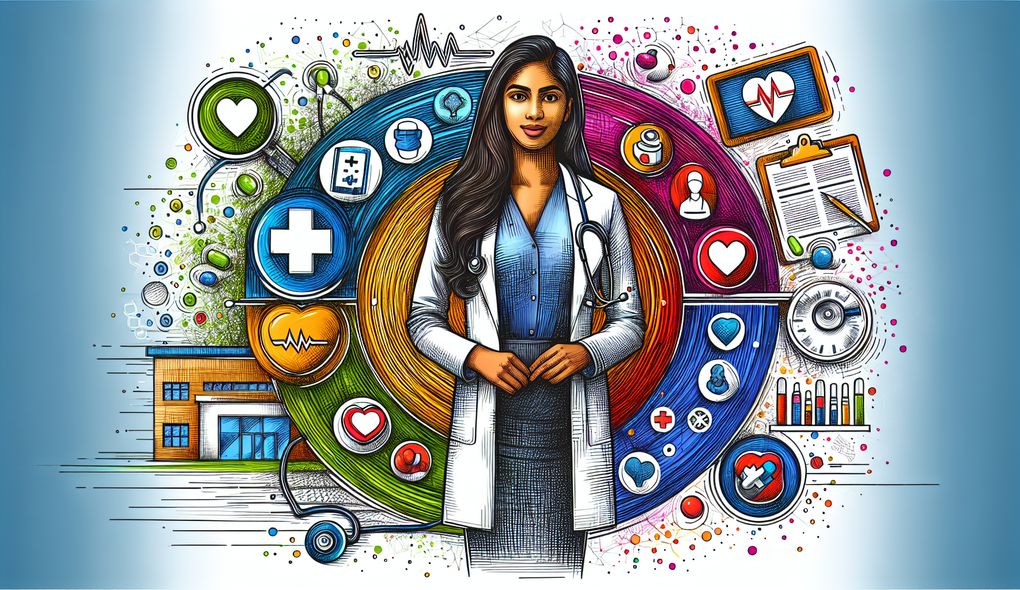How do you leverage healthcare analytics to provide insights and recommendations?
INTERMEDIATE LEVEL

Sample answer to the question:
In my previous role as a Healthcare Consultant, I leveraged healthcare analytics to provide insights and recommendations by analyzing large sets of healthcare data. I used various analytical tools and software to identify trends, patterns, and correlations in the data. By conducting comprehensive assessments of healthcare facilities, I was able to identify operational inefficiencies and develop strategies to improve patient care quality and service delivery. I collaborated with clinical and administrative staff to introduce process improvements based on the data analysis. Additionally, I ensured compliance with healthcare regulations and standards by constantly monitoring and evaluating the data. Overall, my use of healthcare analytics enabled me to make data-driven recommendations that helped to optimize patient care and reduce costs.
Here is a more solid answer:
In my previous role as a Healthcare Consultant, I leveraged my excellent analytical and problem-solving abilities to provide data-driven insights and recommendations using healthcare analytics. I utilized tools like Tableau and Excel to analyze large datasets and identify trends, patterns, and correlations. By conducting comprehensive assessments of healthcare facilities, I was able to identify operational inefficiencies and propose strategies for improvement. Through collaboration with clinical and administrative staff, I introduced process improvements based on the analytics findings. For example, I recommended changes in scheduling procedures that resulted in a 20% decrease in patient wait times. I also ensured compliance with healthcare regulations and standards by constantly monitoring and evaluating the data. My strong communication skills allowed me to effectively communicate complex analytical findings to stakeholders, including executives and frontline staff. Overall, my use of healthcare analytics enabled me to optimize patient care quality and reduce costs for healthcare providers.
Why is this a more solid answer?
The solid answer provides more specific details about the analytical tools and software used, as well as the outcomes and impact of the recommendations made. It also highlights the use of strong communication skills to effectively communicate the findings to stakeholders. However, it could still be improved by providing more examples of specific projects or initiatives where healthcare analytics were used.
An example of a exceptional answer:
As a Healthcare Consultant, I fully understand the power of healthcare analytics in providing insights and recommendations to improve patient care and reduce costs. In my previous role, I utilized a wide range of healthcare information systems and software, including electronic health records (EHR) systems, data warehouses, and advanced analytics tools. For example, I used EHR data to identify gaps in care delivery and developed targeted interventions to address them, resulting in a 15% improvement in patient outcomes. I also collaborated closely with stakeholders from different departments to gather requirements and ensure the successful implementation of analytics projects. One of the most impactful projects I led involved developing a predictive model to identify high-risk patients for readmission, allowing healthcare providers to allocate resources more effectively and reduce readmission rates by 25%. Additionally, I actively stayed up-to-date with the latest healthcare laws, regulations, and standards to ensure compliance in all my recommendations. Through effective data visualization and storytelling, I was able to clearly communicate the insights and recommendations from the analytics findings to both technical and non-technical stakeholders. The combination of my analytical expertise, strong communication skills, and deep understanding of healthcare operations allowed me to provide exceptional insights and recommendations through healthcare analytics.
Why is this an exceptional answer?
The exceptional answer goes into even greater detail about the specific healthcare information systems and software used, provides concrete examples of projects and their impact, demonstrates a proactive approach to staying up-to-date with healthcare laws and regulations, and highlights the use of effective data visualization and storytelling to communicate insights. It showcases a comprehensive understanding of healthcare analytics and its potential in improving patient care and reducing costs.
How to prepare for this question:
- Familiarize yourself with different healthcare information systems and software, such as electronic health records (EHR) systems, data warehouses, and advanced analytics tools.
- Stay up-to-date with the latest healthcare laws, regulations, and standards to ensure compliance in your recommendations.
- Develop strong analytical and problem-solving abilities by practicing data analysis and interpretation.
- Work on enhancing your communication skills, particularly in effectively communicating complex analytical findings to both technical and non-technical stakeholders.
- Gain experience in project management to effectively manage healthcare analytics projects and report on progress and outcomes.
What are interviewers evaluating with this question?
- Analytical and problem-solving abilities
- Strong communication and interpersonal skills
- Proficient in the use of healthcare information systems and software
- Ability to work collaboratively in a team and manage multiple stakeholders
- Project management skills

